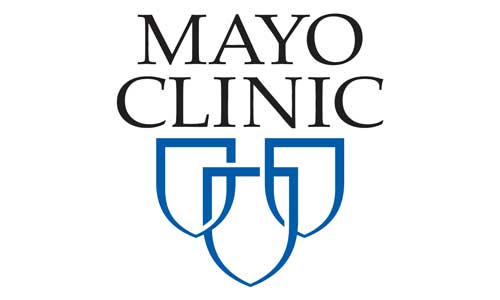This guide explains how constipation affects your well-being during cancer treatment, and what you can do to manage it. Topics covered:
- Overview of constipation, including common causes
- Top evidence-based practices and therapies to manage constipation
Constipation at a glance
Constipation is a common symptom experienced by people with cancer. Some cancer treatments and medications can contribute to this condition, as can inactivity, inadequate fluid and fiber intake, and even emotions such as depression and anxiety. Understanding complementary therapies and lifestyle practices that can alleviate constipation symptoms can be helpful for improving your quality of life.
Constipation: an overview
What is constipation?
Constipation refers to difficulty in having bowel movements or having them less frequently than usual.
Fecal impaction is a serious problem when constipation is unmanaged. “A fecal impaction is a large lump of dry, hard stool that stays stuck in the rectum. It is most often seen in people who are constipated for a long time.”1Fecal impaction. MedlinePlus Medical Encyclopedia. December 31, 2023. Viewed October 23, 2024 Discuss with your practitioner if you experience any of these with chronic (long-term) constipation:
- Abdominal cramping and bloating
- Leakage of liquid or sudden episodes of watery diarrheas
- Rectal bleeding
- Small, semi-formed stools
- Straining when trying to pass stools
What can cause or trigger constipation?
Constipation can be caused by various factors, including medications commonly used during cancer treatment and some lifestyle practices.2Constipation. Johns Hopkins Medicine. Viewed August 27, 2024; Constipation. American Cancer Society. Viewed August 27, 2024.
- Medications
- Some chemotherapy drugs, such as vincristine
- Immunomodulatory medicines such as thalidomide, lenalidomide, and pomalidomide
- Opioids, antidepressants, and the contrast used for CT and MRI scans
- Lack of exercise
- Not enough liquids
- Not enough dietary fiber
- Irritable bowel syndrome
- Ignoring the urge to have a bowel movement
- Overuse of laxatives
- Depression3Wang P, Shen X, Wang Y, Jia X. Association between constipation and major depression in adult Americans: evidence from NHANES 2005-2010. Frontiers in Psychiatry. 2023 Aug 15;14:1152435.
- Anxiety/stress4Hosseinzadeh ST, Poorsaadati S, Radkani B, Forootan M. Psychological disorders in patients with chronic constipation. Gastroenterology and Hepatology from Bed to Bench. 2011 Summer;4(3):159-63.
What are signs and symptoms of constipation?
Consult your doctor if you are experiencing abdominal pain or are experiencing continued constipation.
- Difficult and painful bowel movements
- Fewer than 3 bowel movements a week
- Bloating or abdominal discomfort
Top evidence-based practices and therapies for managing constipation
We present approaches to managing constipation backed by modestsignificant effects in at least three small but well-designed randomized controlled trials (RCTs), or one or more well-designed, mid-sized clinical studies of reasonably good quality (RCTs or observational studies), or several small studies aggregated into a meta-analysis (this is the CancerChoices definition; other researchers and studies may define this differently), goodsignificant effects in one large or several mid-sized and well-designed clinical studies (randomized controlled trials (RCTs) with an appropriate placebo or other strong comparison control or observational studies that control for confounds) (this is the CancerChoices definition; other researchers and studies may define this differently), or strongconsistent, significant effects in several large (or at least one very large) well designed clinical studies or at least two meta-analyses of clinical studies of moderate or better quality (or one large meta-analysis) finding similar results (this is the CancerChoices definition; other researchers and studies may define this differently) evidence of effectiveness.
Conventional therapies
Stool softeners, fiber supplements, and laxatives are often prescribed for people with constipation. The American Cancer Society advises that “laxatives can be habit-forming and shouldn’t be used long-term. Always check with your doctor or cancer care team before starting a laxative, even if they’re over the counter.”5Constipation. American Cancer Society. April 22, 2024. Viewed August 28, 2024.
Over-the-counter laxatives (not needing a prescription) work in different ways:6Laxatives. Cleveland Clinic. July 10, 2023. Viewed October 10, 2024.
- Bulk-forming laxatives such as Metamucil® add fiber to your digestive tract to stimulate bowel movements. Psyllium, the active ingredient in many bulk laxatives, can be purchased as a supplement.
- Osmotic laxatives such as Gavilax®, Ex-Lax®, or Phillips’® Milk of Magnesia pull water from other body parts and send it to your colon. Various forms of magnesium—magnesium oxide, magnesium citrate, or magnesium hydroxide—are the active ingredient in some osmotic laxatives and can be purchased as supplements.
- Stool softeners such as Colace® increase the water and fat your stool absorbs. If the muscles in your bowel are not moving the stool forward and out of the colon, which is common with constipation caused by opioids, usually a stool softener alone will not relieve your constipation.
- Lubricant laxatives such as mineral oil coat your colon, making it slick.
- Stimulant laxatives such as Dulcolax® activate the nerves that control the muscles in your colon. Senna, the active ingredient in some stimulant laxatives, can be purchased as a supplement.
If these laxatives are not effective, prescription medications are available. If you are in active cancer treatment, have an ongoing health condition, have moderate or severe abdominal pain, or are still not able to have a bowel movement within three days of taking any of the laxatives above, contact your healthcare practitioner.
Lifestyle practices
- Eating Well: People with cancer following diet recommendations, such as a Mediterranean diet ›, experience less constipation.7Abdollahi R, Najafi S et al. The effect of dietary intervention along with nutritional education on reducing the gastrointestinal side effects caused by chemotherapy among women with breast cancer. Nutrition and Cancer. 2019;71(6):922-930; Najafi S, Haghighat S et al. Randomized study of the effect of dietary counseling during adjuvant chemotherapy on chemotherapy induced nausea and vomiting, and quality of life in patients with breast cancer. Nutrition and Cancer. 2019;71(4):575-584. A high-fiber diet and solid food instead of liquid food (unless not recommended by your healthcare team) also contribute to less constipation, including after surgery.8Griffenberg L, Morris M, Atkinson N, Levenback C. The effect of dietary fiber on bowel function following radical hysterectomy: a randomized trial. Gynecologic Oncology. 1997 Sep;66(3):417-24; Miyakawa A, Kodera S et al. Effects of early initiation of solid versus liquid diet after endoscopic submucosal dissection on quality of life and postoperative outcomes: a prospective pilot randomized controlled trial. Digestion. 2019;100(3):160-169. See How to Eat Well › and Recovering from surgery ›
- Moving More: Increasing physical activity, including both gentle activities such as qigong, yoga or walking and more vigorous exercise, may decrease constipation among people with cancer,9Sikandari MH, Siddiqui A et al. Effect of exercise on fatigue and depression in breast cancer women undergoing chemotherapy: a systematic review and meta-analysis. Supportive Care in Cancer. 2024 Jul 16;32(8):515; Xin X, Huang L, Pan Q, Zhang J, Hu W. The effect of self-designed metabolic equivalent exercises on cancer-related fatigue in patients with gastric cancer: a randomized controlled trial. Cancer Medicine. 2024 May;13(9):e7085; Nakano J, Hashizume K et al. Effects of aerobic and resistance exercises on physical symptoms in cancer patients: a meta-analysis. Integrative Cancer Therapies. 2018 Dec;17(4):1048-1058. including advanced cancer.10Albrecht TA, Taylor AG. Physical activity in patients with advanced-stage cancer: a systematic review of the literature. Clinical Journal of Oncology Nursing. 2012 Jun 1;16(3):293-300. See Moving More: What to do (and what to avoid) ›
- Eating Well and Moving More together: Combining a health-promoting diet and physical activity may enhance the benefits of either one alone.11Chen HM, Lin YY et al. Effects of rehabilitation program on quality of life, sleep, rest-activity rhythms, anxiety, and depression of patients with esophageal cancer: a pilot randomized controlled trial. Cancer Nursing. 2022 Mar-Apr 01;45(2):E582-E593; Montagnese C, Porciello G et al. Quality of life in women diagnosed with breast cancer after a 12-month treatment of lifestyle modifications. Nutrients. 2020 Dec 31;13(1):136.
- Hydrating: People who are dehydrated are at risk of constipation, and drinking more water and other hydrating liquids can relieve symptoms.12Arnaud MJ. Mild dehydration: a risk factor of constipation? European Journal of Clinical Nutrition. 2003 Dec;57 Suppl 2:S88-95. See What’s the Best Drink to Stay Hydrated? › from GoodRx Health.
Complementary therapies
- Acupressure involves applying pressure to specific places on your body. For people with cancer, acupressure at targeted points has been shown to provide relief from constipation, including constipation related to opioid use.13Hepp N. How can acupressure help you? What the research says. CancerChoices. August 27, 2024. See Acupressure: affordability and access ›
- Acupuncture involves inserting fine needles into specific points on the body. People with cancer who receive acupuncture often experience relief from constipation, including after surgery and during chemotherapy.14Hepp N. How can acupuncture help you? What the research says. CancerChoices. August 28, 2024. Acupuncture at specific points for each of the four patterns of constipation are recommended in a practice guideline from Hong Kong.15Lam WC, Zhong L et al. Hong Kong Chinese Medicine clinical practice guideline for cancer palliative care: pain, constipation, and insomnia. Evidence-Based Complementary and Alternative Medicine. 2019 Jan 22;2019:1038206. See Acupuncture: affordability and access ›
- Electroacupuncture involves inserting very thin needles at specific points on the body and passing a mild electric current between them. People with cancer treated with electroacupuncture have experienced less constipation in several studies.16Hepp N, Pole L. How can electroacupuncture help you? What the research says. CancerChoices. August 28, 2024. See Electroacupuncture: affordability and access ›
- Probiotics are living microorganisms that are available in many foods, such as yogurt, or as supplements. Prebiotics are fibers that feed these friendly bacteria. People with cancer treated with probiotics, sometimes also with prebiotics, have experienced less constipation in several studies.17Hepp N, Jackson A. How can probiotics and prebiotics help you? What the research says. CancerChoices. August 28, 2024. See Probiotics and Prebiotics: affordability and access ›
- Yoga is an ancient mind-body practice combining movement and stretches with meditation. People with cancer practicing yoga have experienced less constipation in several studies.18Hepp N, Pole L. How can yoga help you? What the research says. CancerChoices. August 28, 2024. See Yoga: affordability and access ›
- Traditional Chinese medicine uses herbal mixtures specific to each of the four patterns of constipation. These are recommended in a practice guideline from Hong Kong.19Lam WC, Zhong L et al. Hong Kong Chinese Medicine clinical practice guideline for cancer palliative care: pain, constipation, and insomnia. Evidence-Based Complementary and Alternative Medicine. 2019 Jan 22;2019:1038206. See Traditional Chinese Medicine and Professionals in Cancer Care › and Table 6 of Hong Kong Chinese Medicine clinical practice guideline for cancer palliative care: pain, constipation, and insomnia ›
Helpful links
Explore other handbooks on cancer side effects
References


